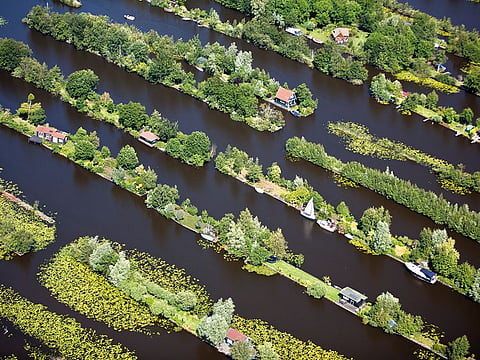Every drop counts in the Netherlands' water conservation efforts
How water can be the engine for climate adaptation

This special edition of Gulf News spotlights how Netherlands partners with the UAE on sustainable development. From renewable energy and environmental conservation to water management and food security, Dutch know-how is playing a major role in the UAE’s drive towards a sustainable future. We look forward to expanding our collaboration.
This month, the UAE hosts COP28, the world’s most important climate summit. After yet another year of climate extremes, the world is coming together in Dubai to discuss climate mitigation, climate adaptation and loss and damage.

Climate mitigation is CO2, climate adaptation is H20. As water envoy of the Kingdom of The Netherlands, I will focus on how to make water the engine of climate adaptation.
Water an engine of change
Climate change manifests itself in water. For the first time in history, mankind has pushed the global water cycle out of balance. People experience the impacts of climate change through water. People living in vulnerable conditions and marginalised groups are the most acutely impacted.
Rainfall, the source of all freshwater, is becoming more erratic. Droughts create severe food insecurity and traps farmers in poverty as 80 per cent of cultivated land is rain-fed. Droughts also put the human right to clean water and sanitation at risk. Floods wreak havoc while melting glaciers, sea-level rise and saltwater intrusion jeopardise freshwater supplies.
To face these challenges, we have to make water the engine of climate adaptation.
Engineering and technology are critical in doing this. The Netherlands has a lot of experience on coastal protection, delta technology, irrigation and drainage technology, climate-resilient infrastructure and water technology.
We have also learned that climate adaptation requires new approaches. In The Netherlands, we battled against water for over 1000 years. We focused on draining water to the sea as quickly as possible through canalised rivers. We built dykes to protect our communities against floods. But with more intense rains, longer dry periods, and rising sea levels, we realized that we cannot continue to fight nature. We are embracing nature-based solutions, giving room to our rivers and restoring our floodplains.
We are sharing experience as we see many other countries that are restoring and protecting natural freshwater stocks to save water for dry periods and to reduce the impact of floods. We are learning together to work with nature to halt the depletion of groundwater and the degradation of wetlands and floodplains. With over 70 per cent of water dedicated to agriculture, food production directly impacts water systems. New agricultural techniques are helping to maintain soil moisture. We are finding ways to produce more food with less.
We are also seeing a trend in which countries around the work are making water availability a central tenet of their spatial planning and economic development. Earlier this year, the Dutch parliament adopted a policy that embraces water and soil guiding principles in all our spatial planning decisions.
Knowledge and data of water and subsurface systems and understanding of future socio-ecological changes are indispensable for these complex planning processes. The Netherlands can contribute its world-class expertise in smart digital solutions for monitoring, detection and management of water systems and infrastructure.
The world is coming together in Dubai to accelerate climate solutions. I hope you will find inspiration in this in-depth look at Dutch climate solutions ranging from renewable energy and environmental conservation to water management and food security. The Netherlands is looking forward to a continued partnership with the UAE. We want to share our knowhow. We want to learn from you. We want to work together on smart solutions for a net-zero and water secure world.



